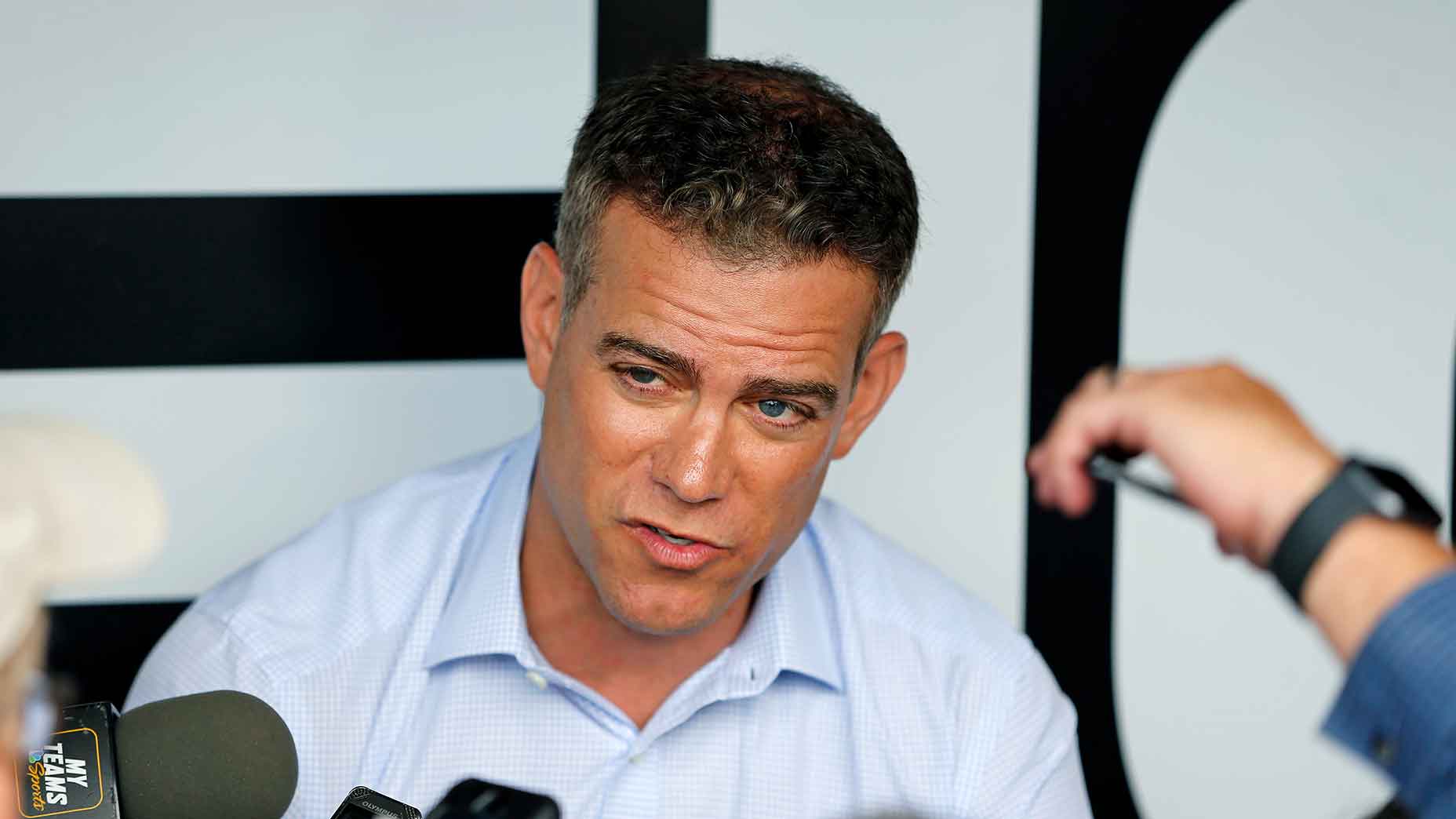Tiger Woods is the headliner, as he has been his entire career. As the chairman of the PGA Tour’s new Future Competitions Committee, Woods will do plenty of negotiating, talking and hand-wringing to enact changes to the Tour.
But sitting on Woods’s committee is a far more curious fellow, at least when it comes to golf: Theo Epstein. Yes, the man who not only helped lead the Red Sox and Cubs to World Series rings but also helped institute pitch clocks in baseball. It wasn’t easy to contort America’s most traditional pastime to fit modern times, but he did it. And he’s tasked with doing some of the same with the PGA Tour.
Epstein was employed as a consultant for Major League Baseball when he pivoted slightly to an advisor (and part-owner) role with Fenway Sports Group in early 2024. That move was announced on Feb. 2, 2024, just days after FSG and numerous other sports owners invested a collective $1.5 billion in PGA Tour Enterprises.
In other words, Epstein’s arrival at FSG came right around the time FSG got in deep with the Tour. That connection is mostly coincidental, but his presence on the newfound committee is not. Epstein is a golf-loving 10.4 handicap who plays plenty of golf in the Northeast. He was there when Rickie Fowler and Justin Thomas played Pine Valley a few years back. (The world found out because Fowler made an ace that quickly spread across social media.)
Epstein joins six players (Woods, Patrick Cantlay, Adam Scott, Camilo Villegas, Maverick McNealy and Keith Mitchell) and two other heavy hitters in the PGA Tour’s new ecosystem: Joe Gorder, chairman of the PGA Tour’s boards, and John Henry, founder and principal owner of FSG. In many ways, Henry is the most involved among those aforementioned investors, which collectively are known as Strategic Sports Group (SSG). It’s telling that one of the only non-player members of the committee is one of Henry’s business partners, and also the man who helped Henry’s baseball team end a 86-year title drought.
It wasn’t long after Epstein joined the FSG fold that he was brought down to the RBC Heritage — held annually the week after the Masters — to present to the PGA Tour’s Player Advisory Council what it was like instituting changes within the structures of a traditionally rigid sport. Numerous players left the meeting energized, as reported by Adam Schupak at Golfweek.
The message was simple: create fan-centered changes and the sport will win. When the sport wins, the players will win. That has clearly happened for the MLB, which saw a surge in popularity following various structural changes, and it literally would apply for PGA Tour players, many of whom have received equity grants for their loyalty and performance on the Tour.
“Not only does [SSG’s investment] provide, I think, necessary capital as we work through this competitive model and improved commercial model,” new Tour CEO Brian Rolapp said Wednesday, “I also think it also brings learnings from other sports, which I think is beneficial, in expertise, perspectives that I think will be helpful to grow the PGA Tour.
“It’s one reason why I asked Theo Epstein to participate in this. He clearly has a track record in other sports including baseball and has wrestled with these same competitive issues, and I think we can learn from his experience. I will certainly bring experience from my work at the National Football League in similar matters. I think outside perspective is always a very good thing, as long as it’s applied in the right way. I think SSG has brought that and has been helpful.”
So, what could change look like in the future, where Epstein and Henry help advise the Tour’s decision-makers? Don’t expect to see shot clocks on the back of tee boxes like you’ll see embedded into the backstop at baseball stadiums.
Rather, think about the format of events, the structures of the schedule and even possibly just how many players can call themselves fully-exempt PGA Tour members. These topics have been bandied about among changes the Tour has made over the last few years, often in response to the rise of LIV Golf. But take Rolapp’s words Wednesday as proof that the change won’t necessarily be slow and steady:
“I will say as a general matter, as I said before, this isn’t about incremental change, this is about as significant and aggressive change as we can get for the good. So we’ll be as aggressive as we can.”







